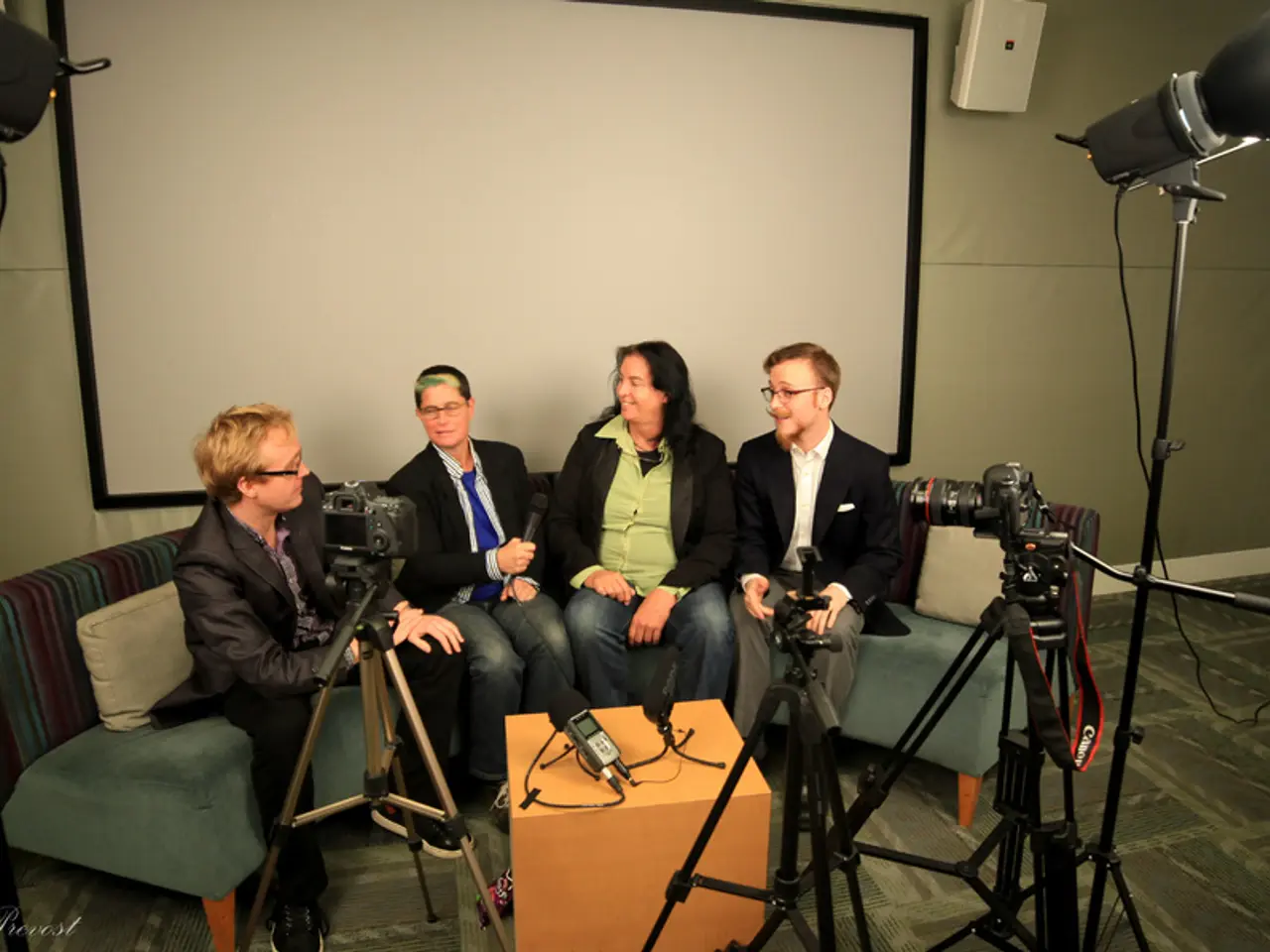Strategies for Integrating an Interview as a Component in a Course Assignment
In the world of academia, interviews can be a valuable tool for enriching class projects and research papers. Here's a step-by-step guide on how to effectively incorporate interviews into your work.
Preparation:
Before diving into an interview, it's essential to do your homework. Research the topic and the potential interviewee to ensure you have a solid understanding of the subject matter. Draft focused questions tailored to your research needs, designed to elicit information that directly supports your project goals.
Conducting the Interview:
Conduct the interview with prior research in hand, ensuring the conversation stays focused and purposeful. Ask clear, open-ended questions, and follow up as needed for depth. Remember to obtain permission if recording the interview, and always focus on listening to the interviewee, avoiding leading questions.
Recording and Transcription:
Deciding whether to record and transcribe the interview is a personal choice, balancing the pros and cons (accuracy vs. convenience). If you do choose to record, take notes afterwards for initial impressions and takeaways.
Integration:
Use direct quotes and summarized content to illustrate, support, or contrast your points within the paper. Personal or participant interviews are cited as personal communications in-text only and usually not in the reference list.
Ethics:
Always obtain consent for participation and recording. Acknowledge interviewees appropriately while maintaining confidentiality if required.
Choosing the Right Interviewee:
Deciding who to interview requires keeping an open mind and following up on requests. If unsure whether an interview could benefit a project, ask your professor for guidance.
Qualitative Interviewing Approaches:
You may choose from qualitative interviewing approaches like a priori question lists, spontaneous open-ended questions, or a combination to comprehensively explore topics while minimizing bias.
In summary, thoughtful design, clear documentation, ethical conduct, and purposeful analysis allow interviews to become powerful evidence and enrich the depth and authenticity of your class projects or research papers.
This guide is based on an interview with Professor of History Alison Isenberg, titled "Doing Research in a Pandemic", featured in our blog News. For more interview tips, check out Andrea's recent post on the blog site.
Online education and self-development can be enhanced by incorporating effective interview techniques into class projects or research papers. Learning from seasoned professionals like Professor Alison Isenberg, through interviews, can provide valuable insights and enrich online education experiences.




